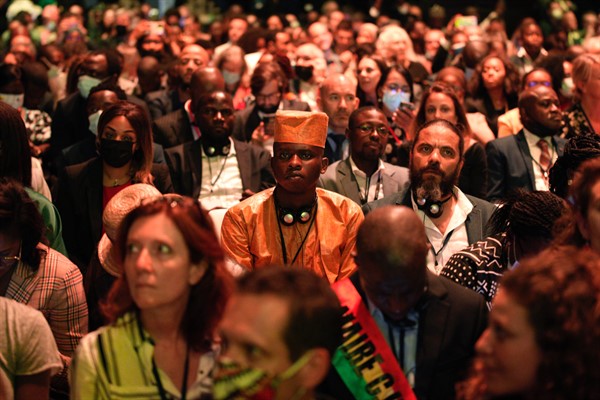Editor’s Note: This is the web version of our subscriber-only weekly newsletter, Africa Watch, which includes a look at the week’s top stories and best reads from and about the African continent. Subscribe to receive it by email every Friday. If you’re already a subscriber, adjust your newsletter settings to receive it directly to your email inbox.
For the first time since the inaugural event in 1973, the Franco-Africa Summit—rebranded as the New Africa-France Summit, or as some referred to it on Twitter and other social media platforms, #AfricaFranceRemix—did not feature a single African head of state or government, or ministerial delegation. Instead, the gathering in the French Mediterranean city of Montpellier brought together nearly 3,000 young businesspeople, artists, writers, researchers, athletes and students from across France, Africa and the broader diaspora.
The summit came as France’s primacy in its historical “pre carre”—or sphere of influence—is being increasingly contested, not only by lingering local resentments over its colonial legacy, but also by external rivals, including Russia, China and even Turkey. It also took place against the backdrop of crises in relations between France and Mali, Algeria and Morocco, as well as a broader effort by French President Emmanuel Macron to address the legacy of France’s colonial and postcolonial past. A recent report commissioned by Macron acknowledged France’s “overwhelming responsibilities” in the 1994 genocide in Rwanda, an issue that has poisoned relations between Paris and Kigali for decades. Before that came a government-commissioned report on the legacy of French colonial rule in Algeria. And recent events in Guinea, as well as the beginning of the trial of several suspects including Blaise Compaore, the former president of Burkina Faso, for the assassination of Thomas Sankara in 1987 have also reopened old wounds on the continent.

